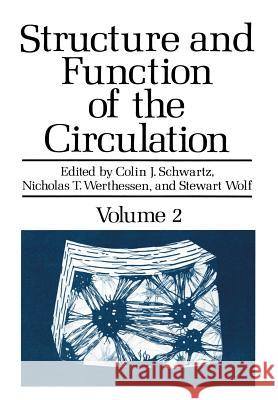Structure and Function of the Circulation: Volume 2 » książka
Structure and Function of the Circulation: Volume 2
ISBN-13: 9781461332091 / Angielski / Miękka / 2011 / 848 str.
Dr. Colin J. Schwartz, the scientific editor of this volume, has stated in his preface that this series is based on the needs identified by two scientific conferences, one in Lindau in April of 1970, and the other held in Heidelberg in October of 1973. Since those conferences, numerous data about vascular disease have been accumulated. Even though atherosclerosis remains the major cause of death in industrial countries, evidence in affluent societies points toward a decline in arteriosclerotic death- strokes and myocardial infarction in particular - during recent years. The most prominent example comes from the U. S., but other high-risk regions such as eastern Finland, have also reported a decline. Most likely, this development stems from a change in so- called environmental risk factors. Volume II of this handbook deals further with the structure and function of the circulation and con- sequently addresses the basic physiological and anatomical elements which are ultimately responsible for the pathological and anatomical changes in the arterial system. While not specifically devoted to the description of disease, this volume nevertheless touches on rele- vant pathogenetic and etiologic mechanisms. More than a century ago the pathogenesis of atherosclerosis in its initial phases had been described by VIRCHOW. He made endothe- lium the centerpiece of his observations. The morphology of the endothelium and its function playa key role in the manifestations of atherosclerosis. Our knowledge about the function of these cells have yielded important insights.











